- As a branch campus of the largest university in the state, we are able to offer our students many of the same benefits available on the Albuquerque campus. With an average class size of 15 students, UNM-LA provides the individual attention more often found at a small liberal arts college than at a state university.
School Highlights
University of New Mexico-Los Alamos Campus serves 1,887 students (5% of students are full-time).
The college's student:teacher ratio of 39:1 is higher than the state community college average of 16:1.
Minority enrollment is 71% of the student body (majority Hispanic), which is less than the state average of 74%.
Quick Stats (2025)
- Enrollment: 1,887 students
- In-state tuition: $1,770
- Out-state tuition: $4,884
- Student:teacher ratio: 39:1
- Minority enrollment: 71%
- Source: Integrated Postsecondary Education Data System (IPEDS)
School Overview
The teacher population of 49 teachers has stayed relatively flat over five years.
University of New Mexico-Los Alamos Campus
(NM) Community College Avg.
Carnegie Classification
Associate's Colleges: High Transfer-High Nontraditional
Associate's Colleges: Mixed Transfer/Career & Technical-High Nontraditional
Institution Level
Less than 2 yrs
At least 2 but less than 4 years
Institution Control
Public
Public
Total Faculty
49 staff
111 staff
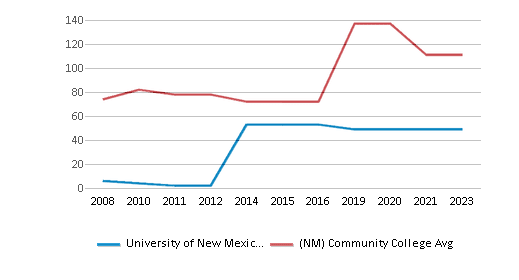
School Calendar
Student Body
The student population of University of New Mexico-Los Alamos Campus has grown by 106% over five years.
The student:teacher ratio of 39:1 has increased from 19:1 over five years.
The University of New Mexico-Los Alamos Campus diversity score of 0.65 is less than the state average of 0.67. The school's diversity has stayed relatively flat over five years.
Total Enrollment
1,887 students
1,548 students
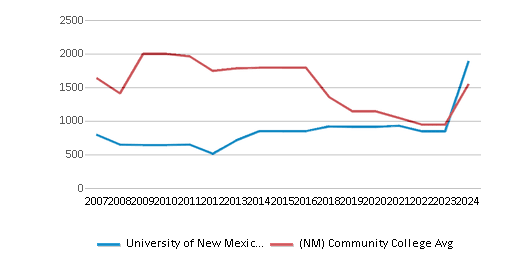
Student : Teacher Ratio
39:1
16:1
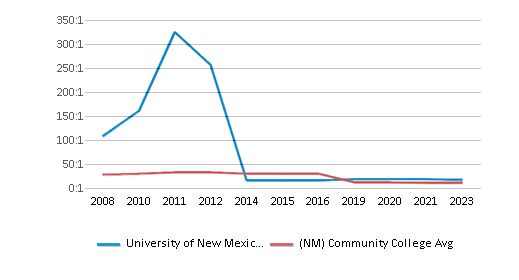
# Full-Time Students
97 students
371 students
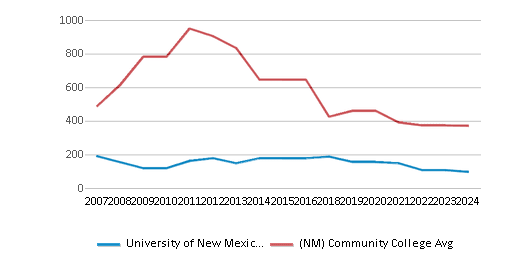
# Part-Time Students
1,790 students
1,774 students
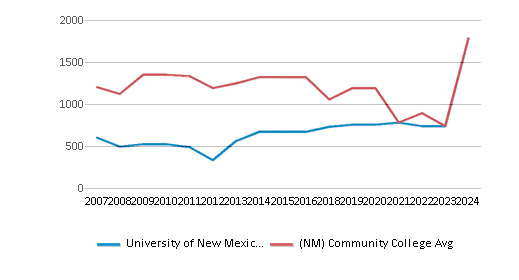
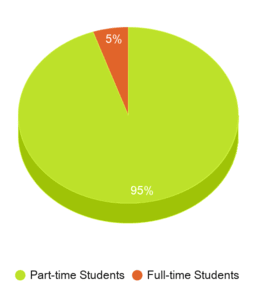
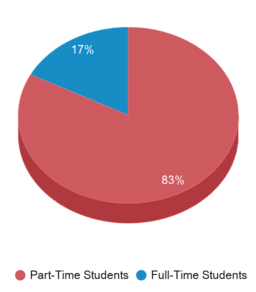
# Enrollment Undergraduate
188 students
284 students
# Full-Time Undergraduate Students
97 students
490 students
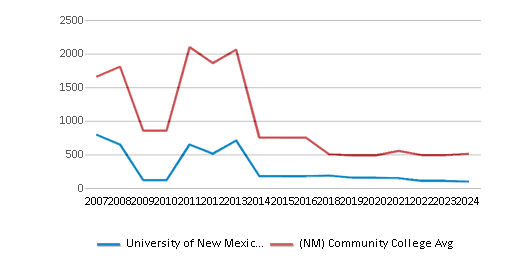
# Full-Time Graduate Students
n/a
146 students
# Part-Time Undergraduate Students
n/a
1,790 students
# Part-Time Graduate Students
n/a
128 students
Total Dormitory Capacity
n/a
258 students
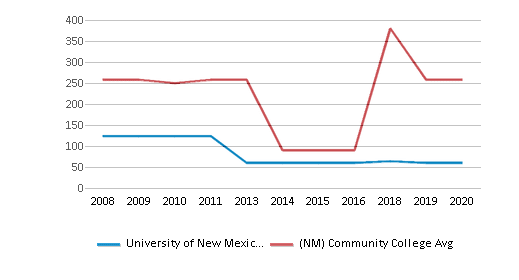
% American Indian/Alaskan
6%
10%
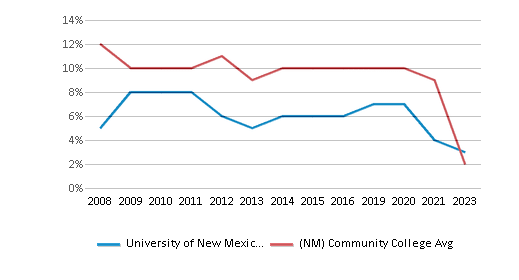
% Asian
4%
2%
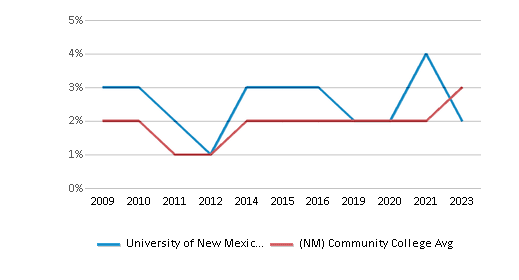
% Hispanic
51%
50%
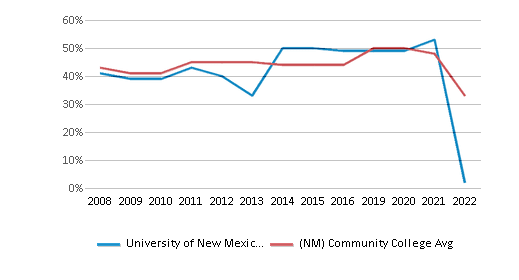
% Black
2%
3%
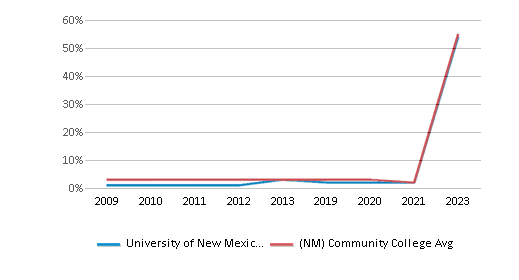
% White
29%
26%
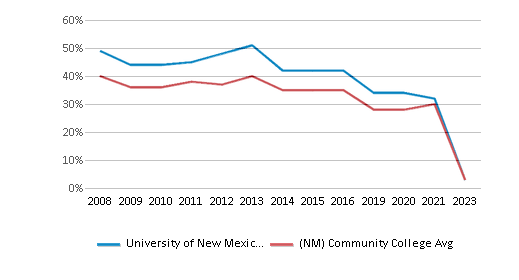
% Hawaiian
n/a
n/a
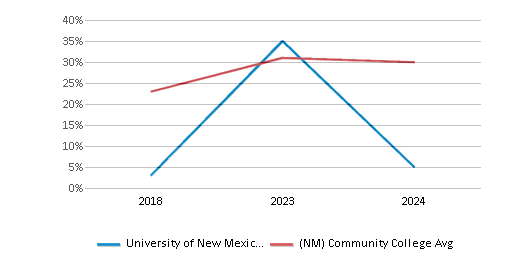
% Two or more races
3%
3%
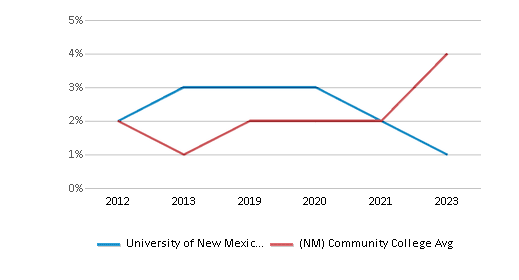
% Non Resident races
2%
1%
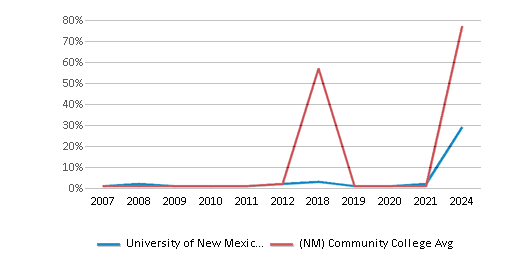
% Unknown races
2%
5%
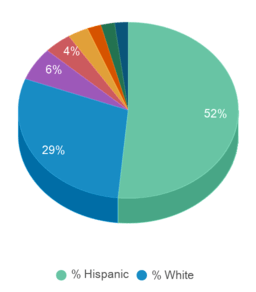
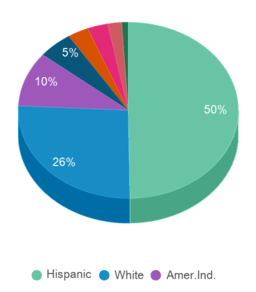
Diversity Score
0.65
0.67
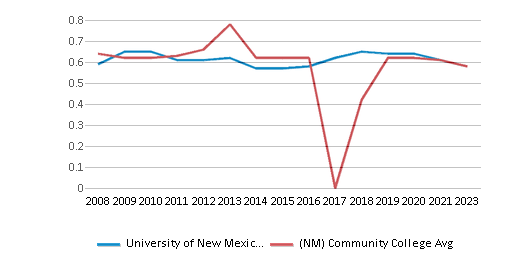
College Completion Rate (Students who graduate in less than 4 years)
0.2985%
0.2452%
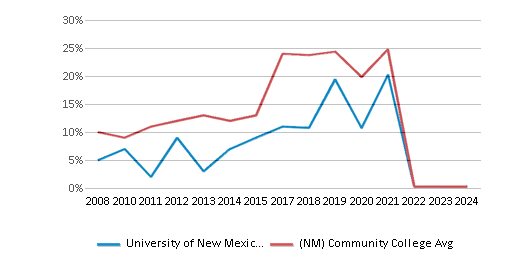
College Completion Rate (Students who graduate in 4 years or more than 4 years)
n/a
0.3955%
Average Graduate Earnings (10 Years)
$42,000
$36,300
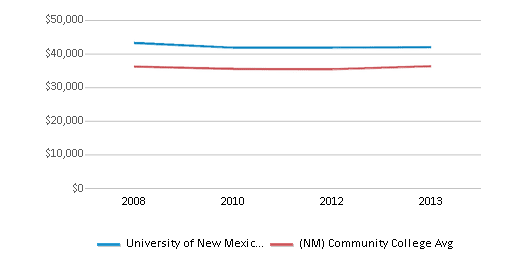
Tuition and Acceptance Rate
The public in-state tuition of $1,770 is less than the state average of $2,058. The in-state tuition has declined by 14% over four years.
The public out-state tuition of $4,884 is more than the state average of $4,570. The out-state tuition has declined by 12% over four years.
In-State Tuition Fees
$1,770
$2,058
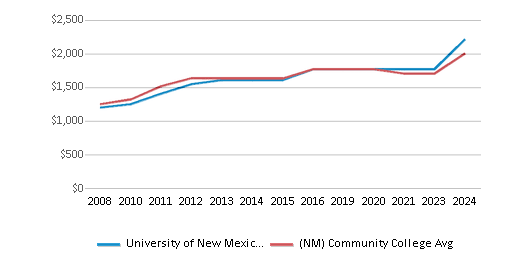
Out-State Tuition Fees
$4,884
$4,570
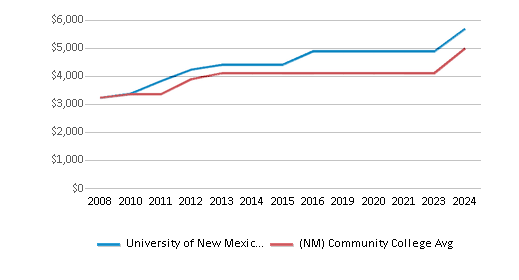
% Students Receiving Some Financial Aid
93%
91%
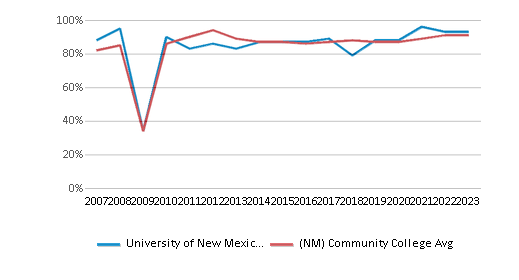
Median Debt for Graduates
$18,500
$13,236
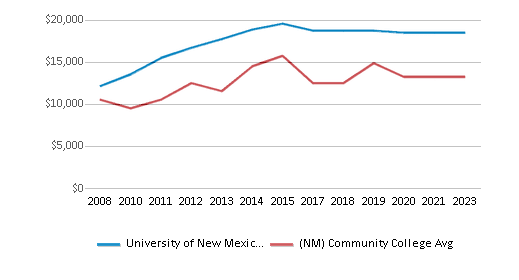
Median Debt for Dropouts
$9,500
$6,125
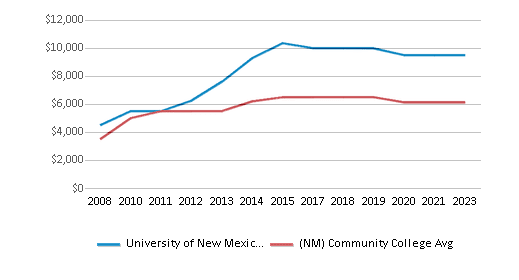
Acceptance Rate
n/a
100%
SAT Reading
n/a
485
SAT Math
n/a
505
SAT Writing
n/a
455
ACT Composite
n/a
20
ACT English
n/a
19
ACT Math
n/a
21
Source: 2024 (or latest year available) Integrated Postsecondary Education Data System (IPEDS)
School Notes
- Our exceptional faculty make teaching their top priority. Because of our proximity to Los Alamos National Laboratory, we have been able to attract top faculty in many areas, including technology and the sciences, and many of our students eventually become lab employees. Los Alamos offers excellent employment opportunities in both the public and private sector and UNM-LA works closely with local employers to help students prepare for careers in fields where job prospects are good. UNM-LA currently offers 19 associate degrees and 15 certificate programs and is also an excellent place to complete the first two years of a bachelor's degree program. UNM-LA can prepare students for transfer to a four-year college or university by its offering of general education requirements and specifically those that satisfy the UNM Core Curriculum. UNM-LA encourages students to participate in campus life. Whether your interests lie with student government, art, music or community service, you'll be encouraged to contribute your talents in making UNMLA an interesting place to be. We have a beautiful campus and our Student Center is a great place to meet other students, play pool, watch movies, or get a meal. UNM-LA offers a full range of educational opportunities, including Community Education for both children and adults and Adult Basic Education classes. Through UNM's Extended University, students may complete a bachelor's or a master's degree in selected majors. UNM-LA specializes in courses geared to those completing the first two years of college and to those interested in earning a two-year associate's degree or a certificate in a particular field of study.
Frequently Asked Questions
How much does University of New Mexico-Los Alamos Campus cost?
University of New Mexico-Los Alamos Campus's tuition is approximately $1,770 for In-State students and $4,884 for Out-State students.
Recent Articles

Obtaining Your Bachelor's Degree at a Community College
Explore the evolving landscape of community colleges offering bachelor's degrees, addressing affordability, accessibility, and workforce needs.

A to Z of Community College Certificates and Courses
From business and healthcare to technology and skilled trades, the article showcases the breadth of options available to students seeking to enhance their knowledge, develop new skills, or pursue career advancement.

What is a Community College?
This comprehensive guide explains what a community college is, its history, and its role in higher education. It covers the types of programs offered, differences from four-year colleges, benefits of attending, and important considerations for prospective students, providing valuable insights for those exploring educational options.






